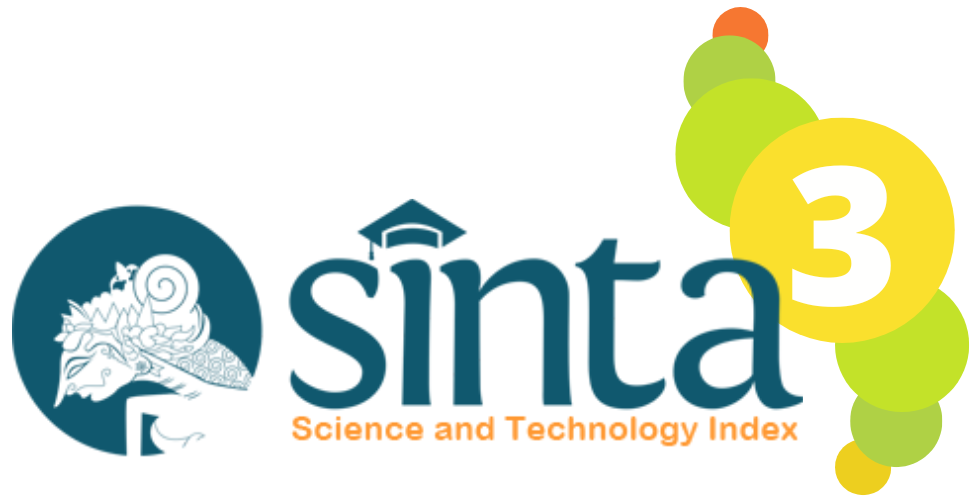Pengembangan Modul Ajar Problem Based Learning (PBL) pada Materi Peluang di Kelas X SMA Assa’adah Bungah Gresik
Sari
The purpose of this research is to produce a product in the form of a teaching module by utilizing a problem-based learning model, namely problem-based learning by focusing on feasible opportunity material by considering 3 aspects, namely valid, practical, and effective. This development research model uses the 4D model, which includes 4 stages namely define, design, develop, and disseminate. This research was conducted in the even semester of the 2023/2024 academic year at SMA Assa'adah Bungah. The results of the research that has been carried out, prove that the teaching module produced is declared valid by getting a score of 3.3, which puts it in the valid category. The teacher response questionnaire scored 3.1, which placed it in the practical category, and the learner response questionnaire scored 3.7, which placed it in the very practical category. In addition, three observers found that the analysis of the learning implementation sheet was effective with an average score of 94% for the fully implemented category and through the summative test results obtained an average score of 90 for the very effective category. Since all three aspects of the teaching module assessment have been met, the teaching module is suitable for use.
Kata Kunci
Teks Lengkap:
PDFReferensi
Aflahah, N. (2022). Pengaruh Model Pembelajaran Blended Learning Terhadap Pemahaman Konsep Matematika Peserta Didik. Universitas Qomaruddin.
Aldo, N., Revita, R., & Nurdin, E. (2021). Pengembangan Modul Berbasis Problem Based Learning pada Materi Statistika SMP Kelas VIII. JRPM (Jurnal Review Pembelajaran Matematika), 6(2), 115–129.
Alfiantara, A., Kusumo, E., & Susilaningsih, E. (2016). Pengembangan Modul Berorientasi Problem Based Learning Berbantuan Aplikasi Android. Jurnal Inovasi Pendidikan Kimia, 10(2).
Chuseri, A., Anjarini, T., & Purwoko, R. Y. (2021). Pengembangan modul matematika berbasis realistik terintegrasi higher order thinking skills (hots) pada materi bangun ruang. Alifmatika: Jurnal Pendidikan Dan Pembelajaran Matematika, 3(1), 18–31.
Ferdianto, F., & Setiyani, S. (2018). Pengembangan bahan ajar media pembelajaran berbasis kearifan lokal mahasiswa pendidikan matematika. JNPM (Jurnal Nasional Pendidikan Matematika), 2(1), 37–47.
Herpratiwi, H. (2021). Pengembangan LKPD Matematika Berbasis Problem Based Learning di Sekolah Dasar. Jurnal Basicedu Journal of Elementary Education.
Indrasari, T., Astuti, E. P., & Kurniawan, H. (2023). Pengembangan Modul Ajar Berbasis Problem Based Learning Untuk Meningkatkan Kemampuan Komunikasi Matematis Siswa. JLEB: Journal of Law, Education and Business, 1(2), 802–812.
Johnson, S., Lavergne, V., Skinner, A. M., Gonzales-Luna, A. J., Garey, K. W., Kelly, C. P., & Wilcox, M. H. (2021). Clinical practice guideline by the Infectious Diseases Society of America (IDSA) and Society for Healthcare Epidemiology of America (SHEA): 2021 focused update guidelines on management of Clostridioides difficile infection in adults. Clinical Infectious Diseases, 73(5), e1029–e1044.
Kemendikbud. (2022). Merdeka Mengajar. Kemendikbud. Prinsip dan Prosedur Pengembangan Modul Ajar – Ruang Kolaborasi Mengajar Merdeka (kemdikbud.go.id)
Kemendikbud. (2023). Konsep dan Komponen Modul Ajar. Merdeka Mengajar. https://guru.kemdikbud.go.id/kurikulum/perkenalan/perangkat-ajar/konsep-komponen-modul-ajar/
Ku, T. K., & Ha, M. (2016). The application of problem based learning in undergraduate nursing education: A strategy for curriculum reform. Journal of Biosciences and Medicines, 4(6), 52–59.
Maydiantoro, A. (2021). Model-Model Penelitian Pengembangan (Research and Development). Jurnal Pengembangan Profesi Pendidik Indonesia (JPPPI).
Nasution, A. (2018). Pengembangan modul matematika berbasis masalah untuk meningkatkan kemampuan pemecahan masalah matematika siswa.
Safithri, R., & Saputri, R. (2023). Pengembangan bahan ajar matematika berbasis problem based learning materi SPLDV kelas X SMA. Jurnal Cendekia: Jurnal Pendidikan Matematika, 7(1), 784–795.
Sugiyono. (2019). Metode Penelitian Dan Pengembangan (Research and Development/ R&D). 38.
Tri Pudji Astuti. (2019). Model Problem Based Learning dengan Mind Mapping dalam Pembelajaran IPA Abad 21. Proceeding of Biology Education, 3(1), 64–73. https://doi.org/10.21009/pbe.3-1.9
Triyana, I. W., & Kurniawati, Y. (2024). Scaffolding Of Prospective Mathematics Teachers On Field Experience Practice At Qomaruddin University. Jurnal Education And Development, 12(1), 110–114.
Ummah, S., & Kuriawati, Y. (2023). Pengembangan Modul Ajar Kurikulum Merdeka Berbasis STEM-PBL Pada Materi Statistika. Conscilience: Jurnal Penelitian Dan Pengabdian Masyarakat, 1(2), 48–62.
Wibowo, A. H. W. (2017). Pengembangan media menipulatif graphmetri model pembelajaran direct instruction untuk meningkatkan kemampuan representasi matematis siswa pada materi grafik fungsi trigonometri. Universitas Negeri Malang.
Yulaistin, S., & Roesdiana, L. (2022). Analisis Kemampuan Pemahaman Konsep Matematis Siswa Kelas IX SMP Pada Materi Translasi. Didactical Mathematics, 4(1), 31–39. https://doi.org/10.31949/dm.v4i1.2010
DOI: https://doi.org/10.33387/j.edu.v22i1.7813
Refbacks
- Saat ini tidak ada refbacks.
| Journal Name | Jurnal Edukasi |
| Print ISSN | 1978-6115 |
| Elektronik ISSN | 2597-9213 |
| Publisher | Fakultas Keguruan dan Ilmu Pendidikan (FKIP) Universitas Khairun |
| Address | Jalan Bandara Sultan Baabullah Kampus I Unkhair, Kelurahan Akehuda, 97728 Kecamatan Kota Ternate Utara, Provinsi Maluku Utara |
| Country | Indonesia |
| j.edukasi@unkhair.ac.id / edukasi2019@gmail.com | |
| URL | https://ejournal.unkhair.ac.id/index.php/edu/index |
| DOI | http://doi.org/10.33387/edu |
Indexed By:
-----------------------------------------------------------------------------------------------------------------------------------------------------------------------------

EDUKASI is licensed under a‚ Creative Commons Attribution-NonCommercial 4.0 International License.












